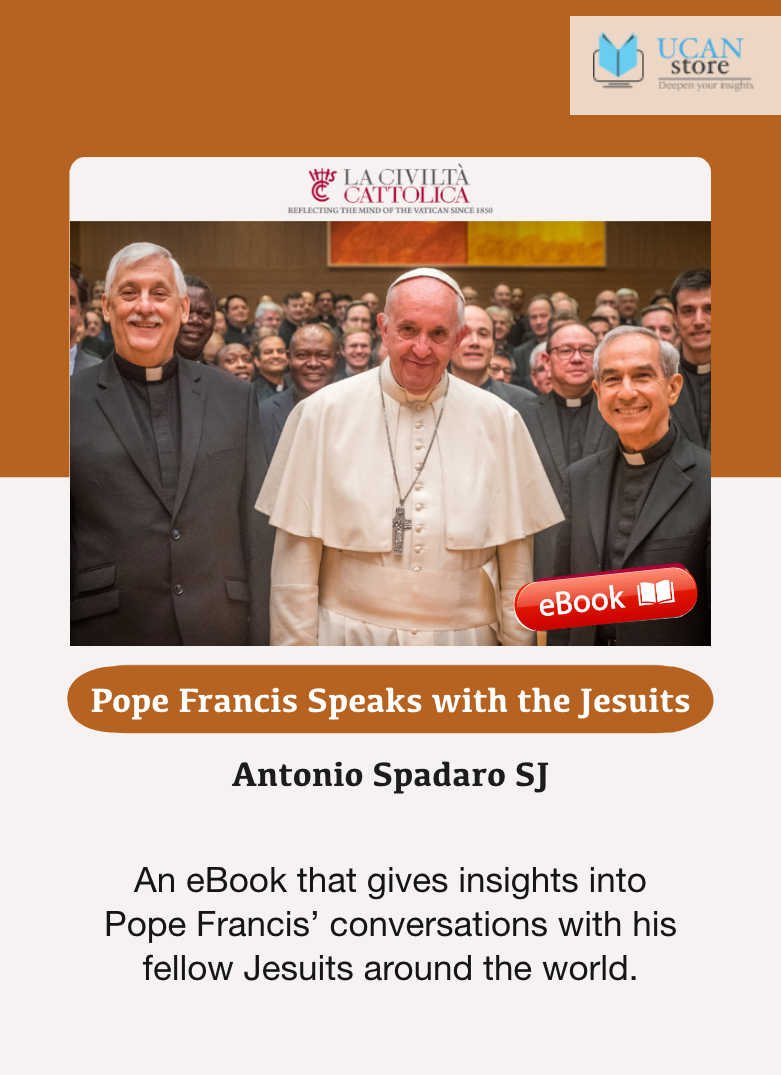

Too much of the management of the Catholic Church presents faith as adherence to rules, most of which start off “Thou shalt not.” The tendency to quote the Catechism and Canon Law as the main guides for the Christian life is the most obvious example of this.
Abstract “principles” take precedence over the lives, worth and struggle for holiness of actual people. Jesus laid aside even the laws of God for the sake of people. We sacrifice people to the laws of the Church.
Those starting point “principles” are usually abstractions that seldom stand up to scrutiny in the light of scholarship, science, common sense or the Gospel. Faith is, indeed, super-rational, beyond nature, but so much of Catholicism as expounded by many teachers and preachers seems to not rise to the level of the simply rational.
Get the latest from UCA News. Sign-up to receive our daily newsletter
Catechisms and Canons are important, but they must be shaped by the Word of God, measured by the Word of God and in service to the Word of God. As Vatican 2 declared, “like the Christian religion itself, all the preaching of the Church must be nourished and regulated by Sacred Scripture.”
Faith formation often means learning a catechism and, perhaps, a few Bible stories, but too seldom involves a real encounter with the Word of God.
Rather than cooperating with the Word’s use of the Church, we often co-opt the Word, mining Scripture for proof texts for our presuppositions.
Unless we individually and as a community make the Word of God central to our life of faith, the Catholic Church in many places is in danger of turning into a cult
Too few teachers in the Church seem willing to submit their teaching to the light of Scripture. How many “homilies” have nothing at all to do with the Scripture presented for the community’s nourishment, reflection and challenge?
Is it any wonder that people ask how many representatives of the Church are even interested in God rather than power, prestige or pet peeves? Dostoevsky’s Grand Inquisitor no longer works in a dungeon. He has cathedrals, chanceries, pulpits, Twitter accounts and wealthy backers.
And too little is being done to pull the institutional Church back to God. Pope Francis is trying, but the opposition seems to be trying even harder to make God a functionary of Catholicism, Inc.
This is a crisis. Unless we individually and as a community make the Word of God central to our life of faith, the Catholic Church in many places is in danger of turning into a cult.
The only remedy to this situation is renewed and deeper closeness by all Catholics to the fullness of revelation, Jesus Christ. And that closeness comes pre-eminently through sacrament, service, prayer and revelation in Scripture and Tradition.
In September 2019, the pope issued Aperuit illis, a motu proprio (a teaching on his own initiative) that declared “that the Third Sunday in Ordinary Time is to be devoted to the celebration, study and dissemination of the word of God.”
“The relationship between the Risen Lord, the community of believers and sacred Scripture is essential to our identity as Christians. Without the Lord who opens our minds to them, it is impossible to understand the Scriptures in depth. Yet the contrary is equally true: without the Scriptures, the events of the mission of Jesus and of his Church in this world would remain incomprehensible. Hence, Saint Jerome could rightly claim: ‘Ignorance of the Scriptures is ignorance of Christ.’”
The first such Sunday was in 2020, and the third will be this coming Sunday, Jan. 23.
But the most important thing is to encounter the Word. That means paying attention to its proclamation in the liturgy
Pope Francis is prescribing an essential remedy to much that is wrong in the Church today. Unless we take it, the Catholic Church in much of the world will die — and deserve it. We believe and hope that if death comes, it will be a prelude to a new life, but in the meantime the world will be bereft of the Church’s mission to proclaim the Reign of God.
However, it is not enough to simply read. We must read with understanding. Catholics are not Biblical fundamentalists. We pay attention to the insights that scholars provide. We say we cannot easily understand the thoughts and words of people only a few generations removed from us. Those who were inspired to write the Biblical texts are separated from us by thousands of years, different cultures and different languages.
A good starting point is the Vatican 2 Dogmatic Constitution on Divine Revelation, Dei verbum, especially Chapter Three: “Sacred Scripture, Its Inspiration and Divine Interpretation.” (Don’t let the words “Chapter Three” scare you off; it’s only six paragraphs, but important ones.)
“For the correct understanding of what the sacred author wanted to assert, due attention must be paid to the customary and characteristic styles of feeling, speaking and narrating which prevailed at the time of the sacred writer, and to the patterns men normally employed at that period in their everyday dealings with one another.”
But the most important thing is to encounter the Word. That means paying attention to its proclamation in the liturgy. It means well-prepared homilies. It means personal reading and prayer-influenced sharing of insights and questions.
The life and mission of the Church as well as the depth and maturity of our personal faith are at stake.
The views expressed in this article are those of the author and do not necessarily reflect the official editorial position of UCA News.



